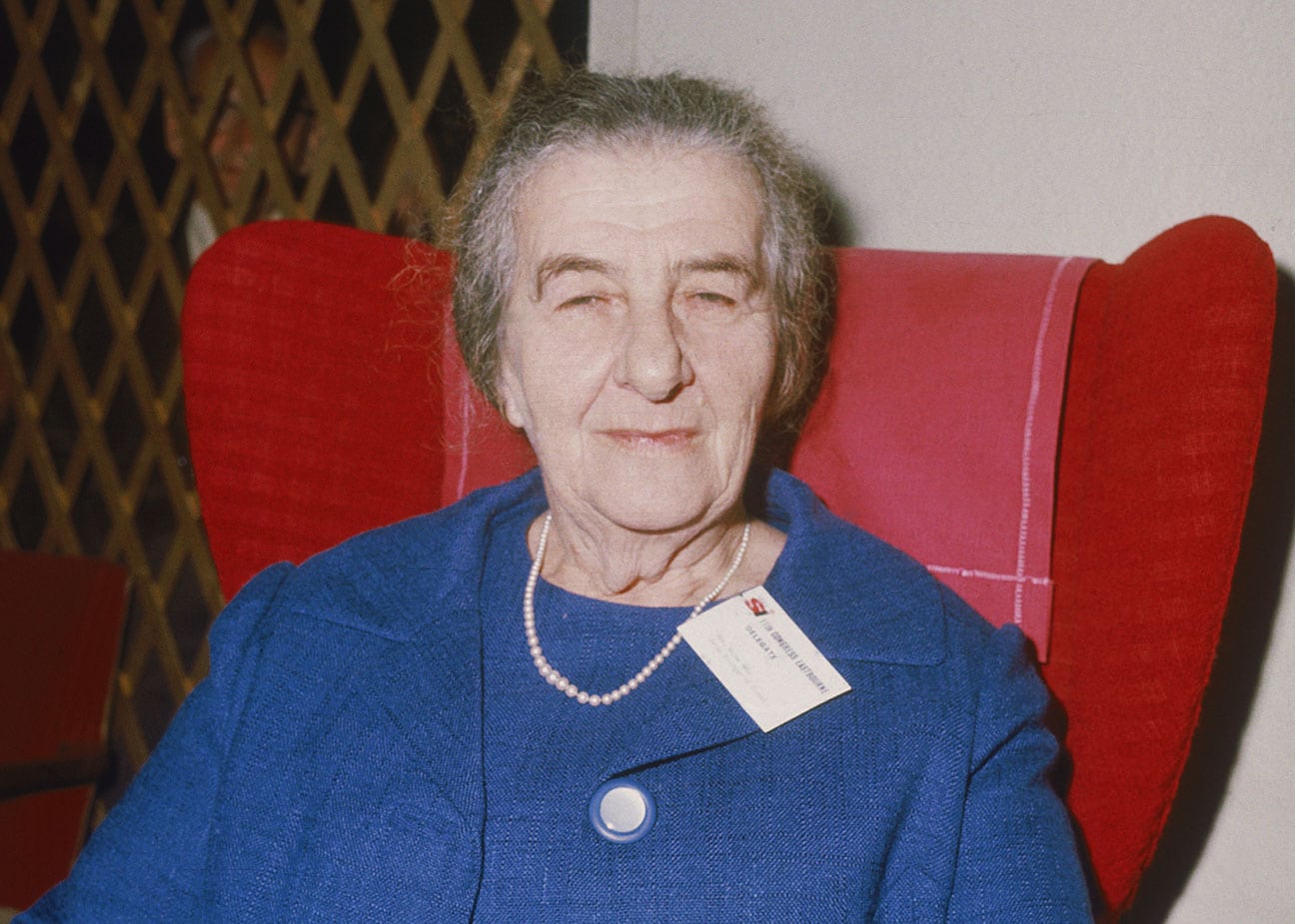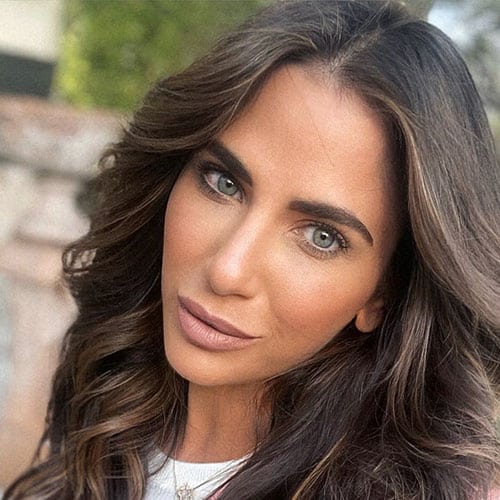 Israeli Prime Minister Golda Meir (Photo by Reg Speller/Fox Photos/Hulton Archive/Getty Images)
Israeli Prime Minister Golda Meir (Photo by Reg Speller/Fox Photos/Hulton Archive/Getty Images) The new film “Golda,” which opens in theaters on August 25th, provides a poignant and deeply moving portrait of one of Israel’s most beloved and transformational Prime Ministers, Golda Meir. Raised largely in Wisconsin, Meir, who served as prime minister from 1969-74, was one of the world’s most prominent female leaders. Many outside Israel know her for the profound insight and empathy encapsulated in her pithy sayings, such as “A leader who doesn’t hesitate before he sends his nation into battle is not fit to be a leader” and “We will only have peace with the Arabs when they love their children more than they hate us.” In the film, Helen Mirren as Golda captures her steely leadership during the bitter challenge of the Yom Kippur War, revealing another side of her powerful character.
October 6, 1973, was Yom Kippur, the holiest day of the Jewish calendar year – the Shabbat Shabbaton (Sabbath of Sabbaths), when Jews traditionally spend the whole day fasting and praying in synagogue. In the leadup to the Holy Day, Israel was aware that Egyptian and Syrian armies were massing on her borders but, as depicted in the film, deferred to U.S. requests not to launch a preemptive strike. Instead, Israel suffered a surprise invasion by the Arab alliance, with the two invaders rapidly advancing as Israel engaged in the largest tank battles since World War II, desperately trying to repel the numerically superior invaders. The stakes could not have been higher — a mere 28 years after the Holocaust, it was understood that not only the survival of the Jewish State but the very lives of its people were in jeopardy. In the film, Golda tells one of her aides that if the Egyptian army captures Tel Aviv, she must not be taken alive.
Israel’s tiny geography and the tragic history of the Jewish people inform another of Golda’s famous quotes: “We Jews have a secret weapon in our struggle with the Arabs — We have no place to go.” In the film, Golda recalls that as a little girl in Ukraine — then a province of the Russian Empire — defenseless Jews were beaten to death in the streets by Cossacks, out of sheer spite, without suffering consequences. We now know that these murders were not random but part of a deliberate policy by the Russian government, with one of the Tsar’s ministers vowing that “one-third of the Jews will convert [to Christianity], one-third will die, and one-third will flee the country.” This gives the lie to the enemies of Israel who suggest that its citizens should “go back” to where they came from — apparently meaning the killing fields of Europe that stole six million Jewish lives or the Middle Eastern nations that expelled another million Jews in the years after Israel’s independence. Those who hate us know full well that this is not a serious proposal. There is nowhere else for Israelis to run to. As a beloved Israeli song puts it, “I have no other country.”
Israel made it out of the Yom Kippur War partly through sheer grit and pluck — most notably, turning around the military situation when then-General Ariel Sharon crossed the Suez Canal into Africa and surrounded an Egyptian Army. Credit is also due to the United States, which sent an emergency airlift to the beleaguered state of Israel, risking an oil embargo from the Arab World. Ultimately, Golda accepted U.S. pressure for a cease-fire once Israel’s forces had gained the upper hand, but on condition that Egypt’s President Sadat not only return all Israeli prisoners of war but also recognize Israel under its own name (as Israel, not the “Zionist Entity,” which rejectionist states like Syria and Iran refuse to do to this day). In the Hebrew Bible, Jacob had to wrestle with an angel (Genesis 32:25) to win the name Israel (“G-d contends” or “wrestled with G-d”), for, as the angel tells him, “you have wrestled with both the divine and with men, and you have prevailed” (Genesis 32:29).
Israel and the Jewish people, throughout history, have repeatedly had to fight for survival, to fulfill our calling as a free and ethical nation that can serve as a “light unto the nations” (Isaiah 49:6). Thanks to the leadership of Golda Meir, Israel survived one of the most terrible challenges of its modern history. However, the war cost the small country 2,656 dead soldiers and 7,251 injured. As Golda said, “It is true that we have won all our wars, but we have paid for them.” Our history teaches us that the price of failure or surrender would have been far higher. Golda the movie is without question a worthwhile way to spend a couple of hours. We all have much to learn from the compassionate and courageous woman so artfully rendered on screen, who made the difficult decisions required to ensure the survival of her people.
Savetsky works with numerous non-profit and philanthropic movements as an outspoken advocate for Israel and the Jewish people.























 More news and opinions than at a Shabbat dinner, right in your inbox.
More news and opinions than at a Shabbat dinner, right in your inbox.